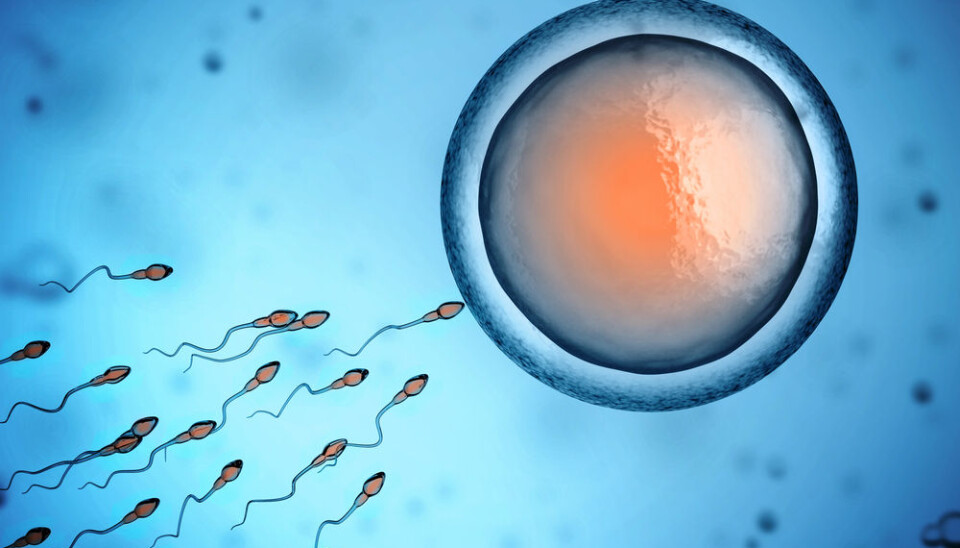
Obesity can be passed on through the father’s sperm
Overweight men may pass obesity on to the children via their sperm, according to new research.
If your father was obese when you were conceived, you may be at increased risk of obesity yourself.
New research published in the scientific journal Cell Metabolism shows that obesity creates changes in the genetic expression of sperm, which increases the risk of the child being obese.
It is the first time that scientists have examined the effect of sperm on obesity.
"It’s common knowledge that when a woman is pregnant, she should take extra care of herself, but if our results are confirmed, then there must be similar recommendations for men," says lead-author Romain Barrés, associate professor at the Center for Metabolism Research at the University of Copenhagen, in a press release.
Semen carries information about the father's weight
The scientists behind the study collected semen from 13 slim men and 10 obese men with an average BMI of 31.8.
They saw that particular genes that control the appetite and development of the brain were different in the sperm of the obese men.
Scientists think that these genetic differences can increase the risk of obesity in these men's offspring.
"It’s very interesting," says Per Ovesen, clinical professor in the Department of Clinical Medicine at Aarhus University, Denmark, and chief physician at Aarhus University Hospital.
Ovesen studies the consequences of obesity and diabetes in pregnant women, but was not involved in the new study.
"This study shows that we can acutely affect genes for example by being overweight. It’s certainly interesting that the genes are expressed differently because the man is overweight," he says.
Obesity surgery alters semen
To find out what causes the genetic changes, the researchers selected six overweight men about to undergo obesity surgery.
They analysed the men's sperm before and after the surgery. The genetic expression changed in men who lost weight after surgery, and their appetite regulation returned to normal.
"It's really exciting that genetic expression can change so quickly, even if they haven’t looked at many [genes]. The fact that you can do something about it and repair genes, so to speak, by losing weight, is very positive," says Ovesen.
The scientists found 5,000 changes in DNA expression after obesity surgery.
In particular, they noticed that certain types of DNA--the so-called DNA methylation, which controls appetite and brain development--were changed.
But the scientists do not yet know what the results actually mean for the offspring of obese men.
Obesity was once an advantage
The new study builds upon Swedish research published in the European Journal of Human Genetics in 2005, which showed that famine in a single population had knock-on effects for the next generation.
Barrés suggests that inheriting information about our father's weight is an evolutionary advantage--especially if he’s overweight.
In the past, when our current set of genes were formed, famine and lack of food were a more frequent occurrence. Therefore, a predisposition to obesity could have been an advantage.
"It’s only recently that obesity is no longer an advantage. A few decades ago the ability to store energy was actually an advantage, as it made us more resistant to infections and famine," says Barrés.
Both Barrés and Ovesen believe that the new research could potentially lead to new recommendations for couples trying to conceive.
"Our research may cause fathers to change their behaviour especially before pregnancy," said Barrés.
Ovesen agrees.
"This suggests that men must also ensure that their weight is fairly normal, if they don’t want a child to be at risk of becoming overweight," he says.
------------------
Read the Danish version of this story on Videnskab.dk
Translated by: Catherine Jex
Scientific links
- "Obesity and Bariatric Surgery Drive Epigenetic Variation of Spermatozoa in Humans", Cell Metabolism (2015), DOI: 10.1016/j.cmet.2015.11.00
- "Sex-specific, male-line transgenerational responses in humans", European Journal of Human Genetics (2006), DOI: 10.1038/sj.ejhg.5201538










